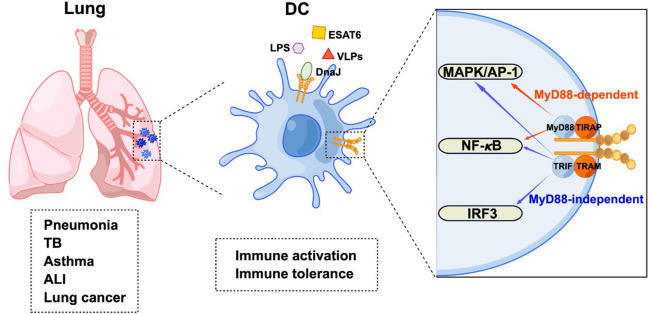
The implication of dendritic cells in lung diseases: Immunological role of toll-like receptor 4


The immune responses play a profound role in the progression of lung lesions in both infectious and non-infectious diseases. Dendritic cells, as the “frontline” immune cells responsible for antigen presentation, set up a bridge between innate and adaptive immunity in the course of these diseases. Among the receptors equipped in dendritic cells, Toll-like receptors are a group of specialized receptors as one type of pattern recognition receptors, capable of sensing environmental signals including invading pathogens and self-antigens. Toll-like receptor 4, a pivotal member of the Toll-like receptor family, was formerly recognized as a receptor sensitive to the outer membrane component lipopolysaccharide derived from Gram-negative bacteria, triggering the subsequent response. Moreover, its other essential roles in immune responses have drawn significant attention in the past decade. A better understanding of the implication of Toll-like receptor 4 in dendritic cells could contribute to the management of pulmonary diseases including pneumonia, pulmonary tuberculosis, asthma, acute lung injury, and lung cancer.
